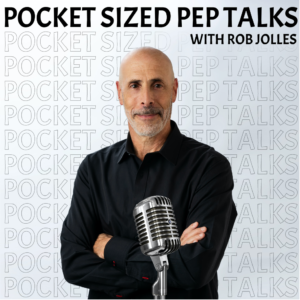 When I work with clients who want to learn how to speak like a professional, one of the first things we work on is dealing with aggressive behavior from members of the audience. It’s an important topic and one that deserves our attention. When I wrote the book, How to Run Seminars & Workshop, I wrote extensively about this topic laying out a series of solutions, but years later, I realized I left one final move out.
When I work with clients who want to learn how to speak like a professional, one of the first things we work on is dealing with aggressive behavior from members of the audience. It’s an important topic and one that deserves our attention. When I wrote the book, How to Run Seminars & Workshop, I wrote extensively about this topic laying out a series of solutions, but years later, I realized I left one final move out.
Let me set the stage for you. Someone has attended a workshop you’ve been leading, and that person has been extremely difficult to work with. Perhaps they saw no value in what you were teaching, or maybe you looked like someone they didn’t like from their past, or maybe they just didn’t want to be there. The snide remarks, ridiculous questions, distracting facial expressions and more, have been hard to handle. Through it all, you maintained your discipline to not engage and attack back. You suffered through a distasteful couple of days, but at least it’s over… and then comes the speech from that difficult person.
It’s amazing how frequently you will be subjected to the same, tired words. The speech is usually delivered with other attendees present, and the puppy dog eyes and sinister smile that go along with the words can make even those with a strong constitution nauseous. At this point in my career, I have the speech memorized. It goes something like this:
“Mr. Jolles, I just wanted to say something if I could. I really liked your training course. I mean, I hope you weren’t offended by my words or actions. I certainly didn’t mean anything by them. It’s kind of how I learn. I really like to make sure I understand everything, so I ask a lot of questions. I know the good instructors like that, and you are one of the good ones. Anyway, thanks again!”
For years, that speech caught me by surprise. The shorter speech that followed by me was usually a clumsy, somewhat tongue-tied, “Uh… that’s okay… uh… thanks for coming up. Take care.” The problem is, that short speech haunted me. If I was angry before that final exchange, I was furious after it; not at the attendee, but at me. Through a manipulative little side-show, I absolved that individual of all that he or she had done to ruin my two days. By the way, often others in the program have been bothered by that same person as well. My response would literally keep me awake at night thinking about what I should have said. So, I learned a different speech, allowing me to be better prepared for this cunning little spectacle to play out. Now I respond this way:
“Thank you for coming up. Your words are not lost on me. However, I do need you to know that your participation in the program made things very challenging for me, and the rest of those in attendance. I’d encourage you to consider a different approach when participating in programs like this. Good luck.” Shake the snake’s hand, don’t overembellish your words, and move on.
That’s my version of the speech. I’d encourage you to create one of your own, and memorize it. The intent is not to embarrass the individual, or to be, in any way, unprofessional. You don’t want to stoop to his or her level. The intent is to provide an honest, professional answer. When you do, you’ll not only be fulfilling your duty as an educator, you’ll reap one other reward: You’ll sleep like a baby.
 What do you get when combine energy, enthusiasm… and great content? You get a “Pocket Sized Pep Talk,” and there are now over 275 of them! Tune in and you’ll hear a collection of conversations, interviews, and even some BLArticles® that are sure to teach, motivate, inspire, and oh yes; entertain! https://podcasts.apple.com/us/podcast/pocket-sized-pep-talks/id1497772972
What do you get when combine energy, enthusiasm… and great content? You get a “Pocket Sized Pep Talk,” and there are now over 275 of them! Tune in and you’ll hear a collection of conversations, interviews, and even some BLArticles® that are sure to teach, motivate, inspire, and oh yes; entertain! https://podcasts.apple.com/us/podcast/pocket-sized-pep-talks/id1497772972
What’s better than one sales trainer? Well, two of course! Join us every other Tuesday for our LinkedIn Live Series at 12:30 pm EST when we bat around different ideas in what we’re calling: “What to say when a prospect says…?”

Just curious—has anyone challenged that statement and created a scene?
I’ll give you your answer, but first I want to tell you how seldomly this occurs. For amateur presenters who have not evolved from a, “Tell them what you’re going to tell them, tell them, tell them what you told them,” antiquated presentation format, snipers are much more prevalent. But for pros who in the first four minutes tell an audience what’s in it for them to listen, what the big picture of the presentation is, of course what we’re going to tell them, but how we’ll be telling them, exactly what we expect from them in the end, and where our information is coming from, (now that’s a sentence!) we don’t see them as often. Now, to your question, no. I have never been challenged giving that speech. Please also remember if it’s an actual workshop stretching over a few days, I can assure you, I’ve already had a talk with this sniper – off-line – and usually flushed out whatever the issue was. Thanks so much for posting Laurie, and if that didn’t answer it, hit me on our email, training@jolles.com and I’ll go even deeper with this response.
There’s a scientific term for people like that. “Asshole.” That’s how they are in everything they do. I’ve tapped those people on the shoulder at breaks and said to stop.
Well… as a guy who has spent a lifetime in the pit teaching others, I’m not so sure I’d use that term, but I get your drift! If you read the comment above, I will also reach out during the breaks, as well as relay responses away, and three or four other techniques. The request to be in a sense absolved of all their crimes afterwards is what I’m writing about here, and want others prepared for. Thanks for posting Fred!
After the first few hours, I had to deal with a participant who made snide comments, stonewalled, and was obnoxious. At the break, I took the guy aside (it’s almost always a man) and basically said something like this: ” John, you have the potential to make this workshop something incredible for your colleagues. It’s a power you have. However, I am gathering that you don’t want to be here so I invite you to leave..or stay and be a powerful, helpful participant. Your choice.”
He stayed and was amazing. I was thrilled.
Don’t get me wrong, I believe there are a series of moves you can make with snipers. In 2012 I wrote a four-part BLArticle® miniseries because I could not fit all the moves that can be made with snipers to reduce their impact on you and your audience. This second tactic, which can be done in front of the audience is probably my favorite. https://jolles.com/handling-aggressive-behavior-a-blarticle-miniseries-rule-two-let-the-audience-help/ That said, when you have a tough sniper, and they pop up once every year or two, tactics like having a civil conversation are not going to undo a lifetime of inappropriate behavior, it’s a battle, and the worst part of that battle is the speech. Not anymore! Thanks for posting Eileen!
The agency I worked for finally hired and used a meeting facilitator.
He knew how to interact w frequently angry or misinformed members of the attending public.
Lance Rakovan of the NRC opened the meeting and introduced himself as the meeting facilitator. Mr. Rakovan discussed the purpose of the meeting and advised participants on the features of the teleconference platform, including how to ask questions and provide comments.
Members of the public asked clarifying questions on the presentation and provided comments on the proposed rule.
Admittedly a 2-hour meeting is different from a 2-day seminar, but the presence of a neutral facilitator seems to be helpful.
I like the idea of an outside facilitator a lot… but not all are as skilled as I’d like them to be handling snipers. The puzzling part of all of this is you would hope a manager, or person of authority would shut down the negative stuff from snipers, but unless he or she is comfortable with confrontation, they rarely do. Hopefully, the facilitator does. Thanks for posting Harold!